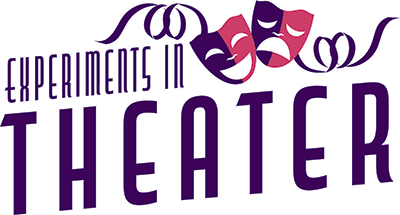Growing up, I was confident in my work ethic, but never considered myself an especially smart or extraordinary student. I have always taken pride in the notion that what I lack in natural ability I make up for in passion, diligence and resourcefulness. In the absence of what I consider to be extraordinary talent or intelligence, however, I discern myself as a largely forgettable person.
I recently ran into my senior year AP English teacher at the theater. It had been over 20 years since I had been in a room with him but it didn’t take much for me to pull him out of a crowd. I approached him and introduced myself and, after a few traditional niceties, his first question to me was, “When are we going to see you performing here?” With over 30 years of teaching under his belt, and given that I am a student from 20 years ago, it was kind of a treat for me that he he remembered me at all, much less that he remembered that I am an actress. The encounter got me to thinking about how a self-proclaimed, forgettable “average kid” like me got into his advanced placement class in the first place. And the only reason that makes sense to me is that I was a theater kid.
My sophomore year English teacher recommended that I apply for a spot in Advanced Placement (AP) English for my junior year of high school. It seemed like a long shot since I was not in the highest-level English class as a sophomore and I would be competing with kids who had been “above me” academically for at least two years. But it felt good to have a teacher think highly enough of me to make the suggestion and I didn’t want to let her down. So I applied. And, somehow, I got in.
I’m certain that I wasn’t the smartest kid in the class, or the best writer, but I loved the assigned reading, I loved the work and, frankly, I loved being in a room with smart people; talking about literature and symbolism and motivation and characters and comparing language, literary styles and perspectives. I averaged a B in my junior year AP class and qualified to advance into senior year AP English where I was excited to be able to dig into the work of Ibsen and Shaw — two playwrights I had been reading for years on my own. No other 16 year old I knew and no person of ANY age in my life understood “A Doll’s House” to be anything more than a children’s toy. So, as you can imagine, I felt validated to finally have a group of people with whom I could share a spirited debate about their work.
I reveled in my AP English experience which, looking back, reminds me a lot of what we in the theater call “table work.” In professional theater, and sometimes even in ammature theaters that maintain professional standards, there is traditionally some time built into the production process for discussion, analysis and close reading of a script. This is where actors begin to intellectually flesh out their character’s intentions, history and purpose in the play before they get on their feet and inhabit the role. My AP English teachers required their students to cultivate the same kind of intimate relationship with a text that an actor does.
The state of Rhode Island, along with most states in the US, have recently adopted the Common Core State Standards Initiative which offers learning guidelines and expectations for college readiness in English Language Arts and Math. In as early as 1st grade, students are expected to engage in close reading, identify given circumstances in a reading and begin to compare and contrast texts. Second grade students under CCSS are challenged to form an opinion about a reading and justify their point of view using details from the text. By the time a young person enters 6th grade in a Rhode Island public school, s/he should be able to make very sophisticated inferences about a reading, voice opinions and justify their point of view in group discussions as well as in writing. (“English Language Arts Standards » Reading: Literature.” English Language Arts Standards » Reading: Literature. N.p., n.d. Web. 30 Sept. 2015. <http://www.corestandards.org/ELA-Literacy/RL/1/>) Even at the most beginning level, these are theater habits.
Theater offers so much more to young people than an opportunity to display their talents in performance. I began performing because I wanted to be an actress, but I’m confident that my participation in theater also nurtured my self-esteem, enhanced my confidence and fostered my intellectual curiosity and growth. Theater made me one of the smart kids. It augmented my education, reinforced my academic advancement and gave me a structured, creative outlet at a tender age when I was saturated with hormone-stimulated emotions in urgent need of expression — and there’s no better home for that than the theater.
How grateful I am for this chance meeting and for the opportunity to reflect on the amity between my requisite education and my passion. And how lovely to be remembered!
